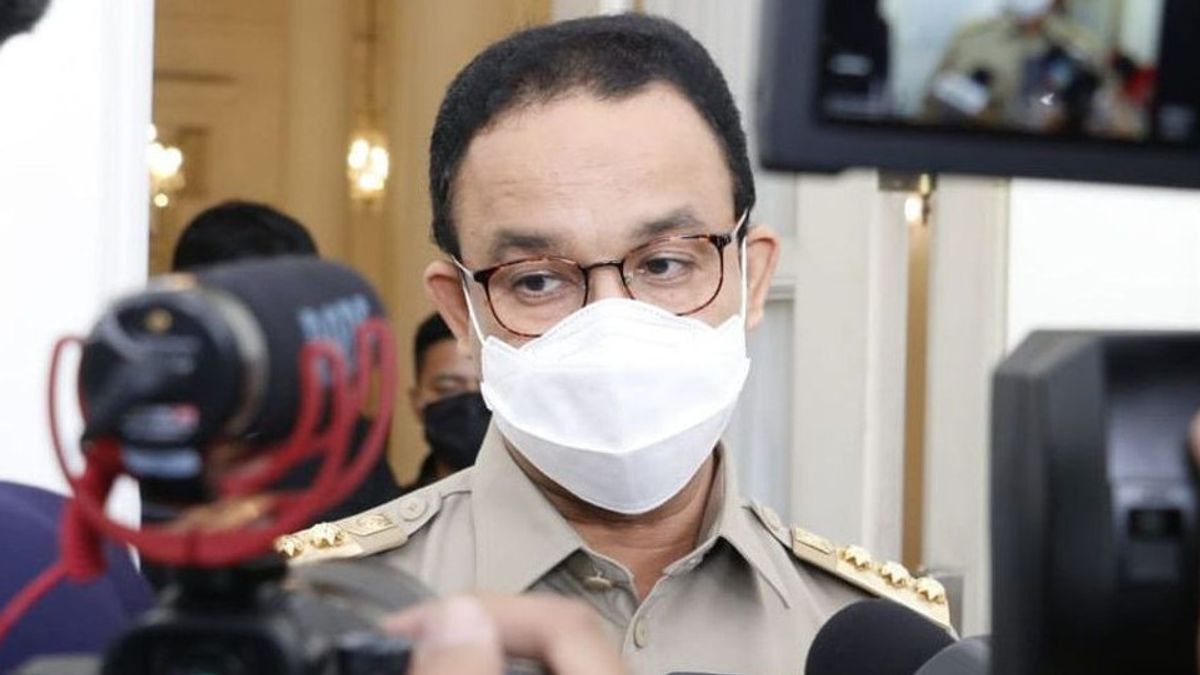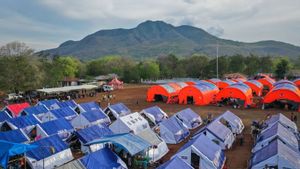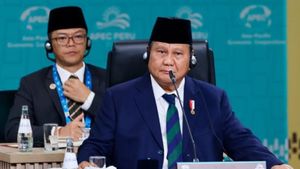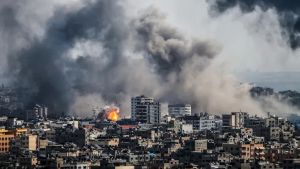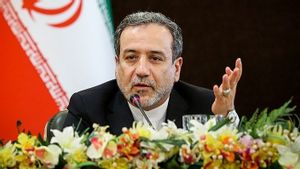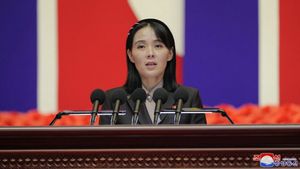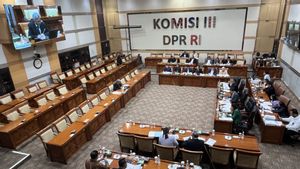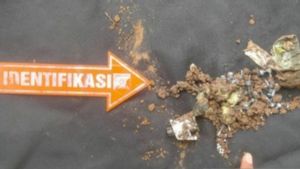JAKARTA - DKI Jakarta Governor, Anies Baswedan, issued Governor Decree Number 1026 of 2021 concerning PPKM (Community Activity Restrictions) Level 3 COVID-19. This follows the central government's decision to lower level 4 to level 3 for the Jabodetabek area until August 3.
Anies said that the condition of Jakarta, which could receive a lower level of mobility restrictions, was good news. However, he appealed to the public to remain disciplined in health protocols.
"This is good news, but it doesn't mean we can ignore it. The health protocol is something that must be done. Don't relax so that conditions in Jakarta continue to improve and do not return to the emergency period as before", Anies said in his statement, Wednesday, August 25.
In the Decree issued by the Governor, it is stated that everyone who carries out activities in Jakarta in each sector or place must have been vaccinated against COVID-19 at least the first dose.
Vaccination requirements are excluded for residents who are still within a grace period of 3 months after confirmed COVID-19 with evidence of laboratory results, residents who are contraindicated for COVID-19 vaccination based on the results of a medical examination with evidence of a doctor's certificate, and children aged less than 12 years.
People who have been vaccinated can attach proof of their status to have been vaccinated on the Jakarta Kini (JAKI) application, a vaccination certificate issued by PeduliLindungi.id, and/or proof of vaccination issued by an authorized institution.
In implementing PPKM Level 3 over the next week, limited face-to-face learning and/or distance learning can be re-implemented. Also, places of worship can hold religious activities in the congregation by implementing stricter health protocols.
The following are the provisions of PPKM Level 3 in Jakarta
1. Activities at work/offices
Non-essential sector:
- work from home (WFH) by 100 percent;
- Essential sectors:
-Finance and banking only includes insurance, banks, pawnshops, futures exchanges, pension funds, and financial institutions that are oriented to physical services with customers: can operate with a maximum capacity of 50 percent of staff for locations related to services to the community, and 25 percent for office administration services to support operations and with the stricter application of health protocols;
-Capital market (which is oriented towards customer service and good capital market operations);
-Information and communication technology includes cellular operators, data centers, internet, postal, media related to the dissemination of information to the public;
- Hospitality without quarantine handling; and For letters (b) to (d) can operate with a maximum capacity of 50 percent of staff and with stricter implementation of health protocols;
-Export-oriented industries and their supports where the company must show proof of sample documents for Export Declaration of Goods (PEB) for the last 12 months or other documents showing export plans and are required to have an Operational Permit and Mobility of Industrial Activities (IOMKI) with due regard to technical arrangements from the Ministry Industry.
-Can only operate 1 shift with a maximum capacity of 50 percent of staff only in factory production facilities, as well as 10 percent for office administration services to support operations, by implementing health protocols, arrangements for entering and leaving and eating employees, not at the same time.
-Essential in the government sector that provides public services that cannot be delayed: 25 percent of the maximum WFO staff is applied with strict health protocols;
-Critical sectors: a. health; b. security and order; c. disaster management; d. energy; e. logistics, transportation, and distribution, especially for the basic needs of the community; f. food and drink and their supporting equipment, including for livestock/pets; g. fertilizers and petrochemicals; h. cement and building materials; i. national vital object, j. national strategic projects; k. construction (public infrastructure); and l. basic utilities (electricity, water, and waste management):
1. For letters (a) and (b) 100 percent of staff can operate without exceptions and with stricter implementation of health protocols;
2. For letters (c) to (l) can operate 100 percent of the maximum staff, only in production/construction facilities/services to the community and for office services to support operations, a maximum of 25 percent of the staff is applied; and
3. Companies that are included in the sector in letter (d), (e), (f), (g), (h), (k), (l) are required to use the PeduliLindung application starting September 6, 2021, to screen for all employees and visitors who enter production/construction/service facilities and office administration areas; and
4. Companies that are included in the sector category according to letter (c) are required to obtain a recommendation from the technical ministry of sector development before being able to gain access to use PeduliLindungi.
2. Teaching and learning activities
The implementation of learning in education units can be carried out through limited face-to-face learning and/or distance learning based on the Joint Decree of the Minister of Education and Culture, Minister of Religion, Minister of Health and Minister of Home Affairs Number 03/KB/2021, Number 384 of 2021, Number HK. 01.08/MENKES/4242/2021, Number 440-717 of 2021 regarding guidelines for the implementation of learning during the Corona Virus Disease 2019 (COVID-19) pandemic and for Education units that carry out face-to-face learning is limited to a maximum capacity of 50 percent, except for:
1. SDLB, MILB, SMPLB, SMLB, and MALB a maximum of 62 percent to 100 percent by maintaining a minimum distance of 1.5 meters and a maximum of 5 students per class; and
2. PAUD is a maximum of 33 percent by maintaining a minimum distance of 1.5 meters and a maximum of 5 students per class.
3. Activities in the daily necessities sector
a. Supermarkets, traditional markets, people's markets, grocery stores, and supermarkets that sell daily necessities: operating hours are limited to 20.00 WIB with a capacity of 50 percent of visitors, and with stricter implementation of health protocols, especially the main market can operate according to operational hour;
b. Pharmacies and drug stores: can be open 24 hours, with stricter implementation of health protocols;
c. People's markets that sell non-daily necessities: can operate with a maximum capacity of 50 percent, and operating hours are limited to 15.00 WIB, with stricter implementation of health protocols.
d. Street vendors, grocery stores, voucher agents/outlets, barbershops/barbershops, laundromats, hawkers, small workshops, vehicle washes, and others: allowed to open and operating hours until 20.00 WIB with stricter implementation of health protocols.
4. Eating/drinking activities in public places
a. Food stalls/warteg, street vendors, hawker stalls, and the like: allowed to open and operating hours until 20.00 WIB with a maximum of visitors eating 25 percent of capacity and a maximum meal time of 30 minutes with stricter implementation of health protocols;
b. Restaurants/restaurants, cafes located in closed buildings/shops in separate locations: only accept the delivery/take away and do not accept dine-in.
c. Restaurants/restaurants, cafes with service areas in open spaces: allowed to open and operating hours are up to 20.00 WIB with a maximum capacity of 25 percent 1 table for a maximum of 2 people, and a maximum meal time of 30 minutes with stricter implementation of health protocols.
5. Activities in shopping centers/malls/trade centers
a. Allowed to operate 50 percent from 10.00 WIB to 20.00 WIB with due observance of the provisions in letters (c.4) and (f.2) and with the health protocol regulated by the Ministry of Trade;
b. Mandatory to use the PeduliLindung application to screen all visitors and employees of related shopping centers/malls/trade centers;
c. Restaurants/restaurants, cafes inside shopping centers/malls/trade centers can accept dine-in with a maximum capacity of 25 percent), 1 table for a maximum of 2 people, and a maximum meal time of 30 minutes;
d. Residents under the age of 12 are prohibited from entering shopping centers/malls/trade centers; dane. Cinemas, children's playgrounds, and entertainment venues within shopping centers/malls/trade centers are closed.
6. Construction activities
Construction sites for public infrastructure (construction sites and project sites): operate 100 percent with operating hours and capacity settings, with stricter implementation of health protocols.
7. Worship activities
Places of worship (mosques, prayer rooms, churches, temples, temples and pagodas, and other places that function as places of worship): can hold congregational worship/religious activities during the PPKM Level 3 period with a maximum of 50 percent capacity or 50 people by implementing more health protocols strict and pay attention to technical arrangements from the Ministry of Religion.
8. Activities at health service facilities
Health care facilities: 100% operational, with stricter implementation of health protocols.
9. Activities in public areas and other places that can cause crowds
- Public facilities, public areas, public parks, public tourist attractions, and other public areas: temporarily closed
- Wedding reception venues: can be held with a maximum of 20 invitations and do not hold meals on the spot by implementing stricter health protocols
- Locations for arts, culture, and social activities that can cause crowds and crowds: temporarily closed.
- Sports facilities:
a. Sports activities in a closed room, sports activities carried out in groups and sports competitions are temporarily closed;
b. Especially for sports facilities in open spaces, they can operate with the following conditions:
1) Operational hours until 20.00 WIB, without spectators with stricter implementation of health protocols;
2) Conducted in an open space (outdoor) either individually or in small groups of a maximum of 4 people, does not involve physical contact with other people and does not routinely require individual interaction nearby, can be carried out with the implementation of strict health protocols;
3) Outdoor sports facilities are permitted with 50 percent of the maximum number of people;
4) Masks must be worn during sports activities, except for sports activities that require removing the mask, such as swimming. For sports activities that require removing the mask, the mask can only be removed when carrying out sports activities;
5) Temperature checks are carried out on everyone who enters the sports facilities;
6) Restaurants/restaurants and cafes within sports facilities are not permitted to accept dine-in;
7) Supporting facilities such as lockers, VIP rooms, and bathrooms are not permitted to be used except for toilet access;
8) Users of sports facilities are not allowed to gather before or after sports activities and must keep their distance;
9) Screening for visitors at sports facilities must use the Peduli Protect application; and
10) Sports facilities that violate health protocols will be subject to sanctions in the form of temporary closures.
10. Activities on the mode of transportation
- Public transportation, national transportation, taxis (conventional and online), and rental vehicles: a maximum of 70 percent of passengers of capacity, with stricter implementation of health protocols;
- Ojek (online and base): passengers at 100 percent of capacity, with stricter implementation of health protocols.
The English, Chinese, Japanese, Arabic, and French versions are automatically generated by the AI. So there may still be inaccuracies in translating, please always see Indonesian as our main language. (system supported by DigitalSiber.id)
